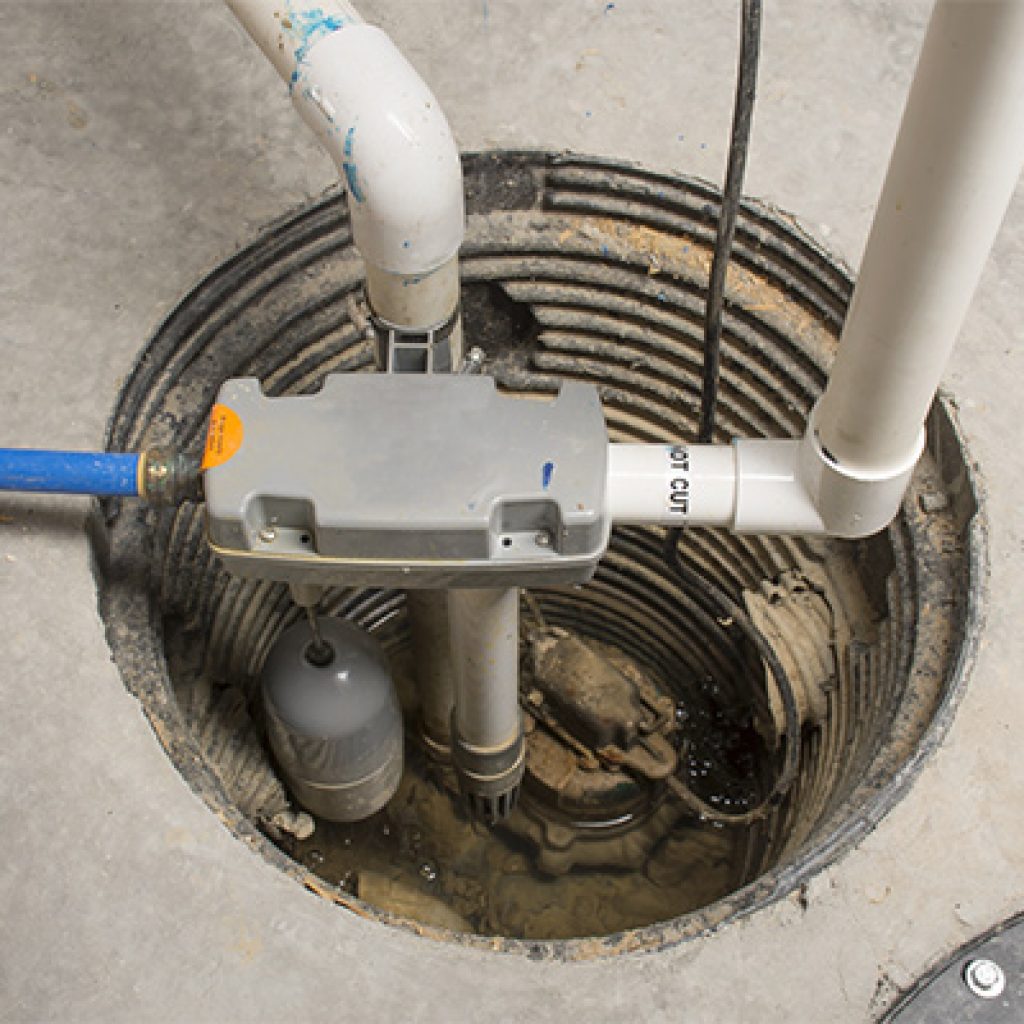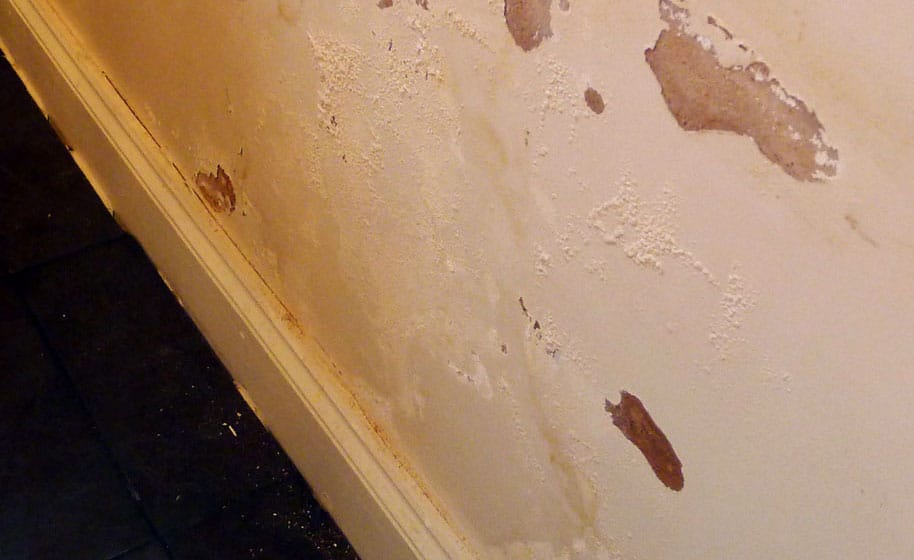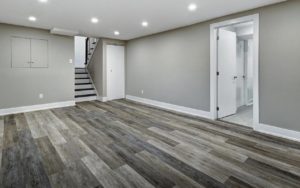Reduce Humidity from Internal Sources
Plumbing leaks are one of the most common sources of humidity inside your house. Typically, the lowest floor is one of the most likely places to suffer faulty plumbing in your home. Always be on the lookout in your basement for wet spots, leaking, and other signs of plumbing problems. Another non-visual way to check for leaks is not to use your water for a few hours and check to see if the water meter indicates any water consumption.
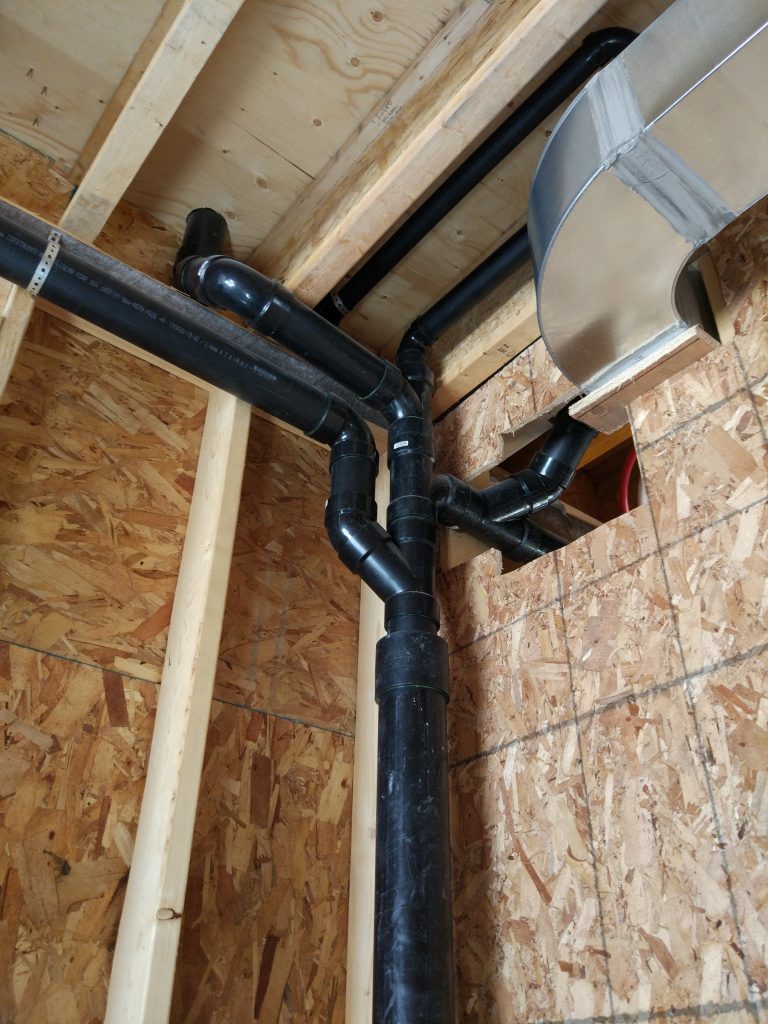
Consider Installing Additional Exhaust Fans
The best way to combat this extra moisture is to install proper ventilation to direct it out of the house. That means installing a vent that discharges moisture from your dryer directly outside. Also, consider using exhaust fans in both your bathroom and kitchen so that the steam from showering and cooking doesn’t end up contributing to a moist basement.
Humidifiers vs. Dehumidifiers
In contrast, dehumidifiers can be a huge help when it comes to taking humidity out of the air. If you struggle with a chronically humid basement, try placing a dehumidifier or two down there to try and absorb some of the moisture. Don’t forget to empty the dehumidifier’s water tray when it becomes full.
Reduce Humidity from External Sources
Check Your Gutters & Catch Basin
If you want to fend off rainwater from reaching your basement, you’ll need to make sure that your gutters are functioning correctly. That means keeping them clean and checking that they allow for the proper flow of water through your house’s drainage system. Failure to keep them clean can result in water leaking down the edge of your home, seeping into the foundation, and eventually making its way into the basement.
Look for Cracks in the Foundation
If you have a hole in your foundation, it’s only a matter of time before water finds its way into your basement. While you may be able to use caulk to remedy smaller cracks on your own, the best option is usually to call in the help of a professional. Using a professional will guarantee that your foundation receives a sustainable, quality repair that will prevent more severe damage down the line.
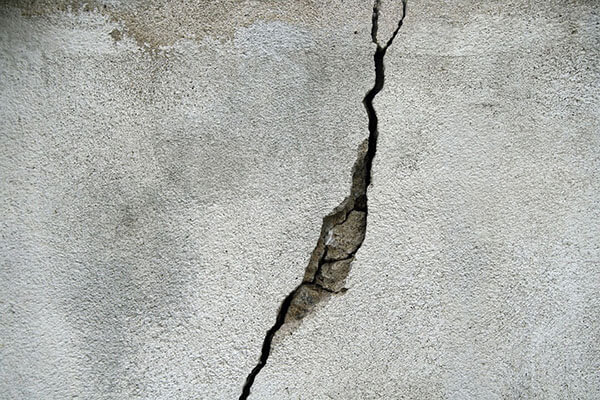
Utilize Additional Circulation
Insulate the Walls of Your Basement
Inspect Your Sump Pump
The purpose of a sump pump is to gather water near your home’s foundation and pump it away from your property. If you happen to notice that your pump isn’t functioning correctly, the water near your foundation may be slowly making its way into your home from the outside. Make a habit of checking your sump system regularly so you can keep unwanted moisture out of your basement.
Taking precautions such as those outlined here can help prevent high humidity in your basement and save you from costly water damage in the future.
